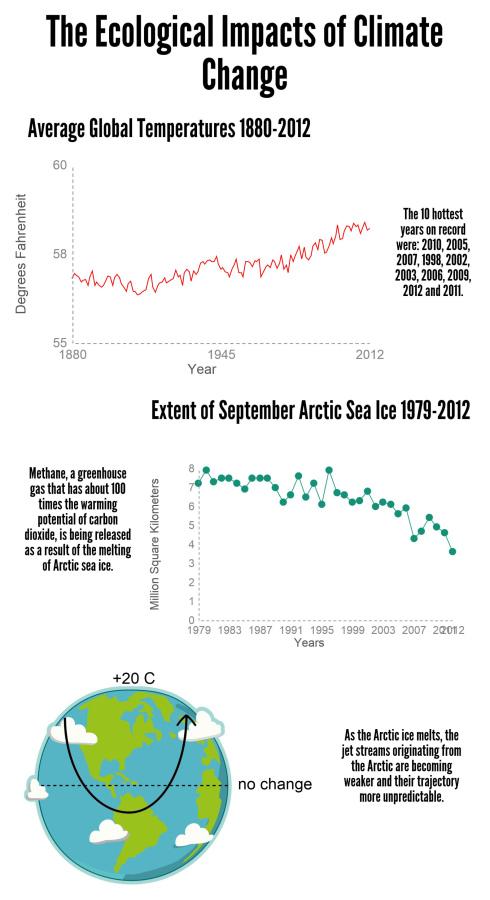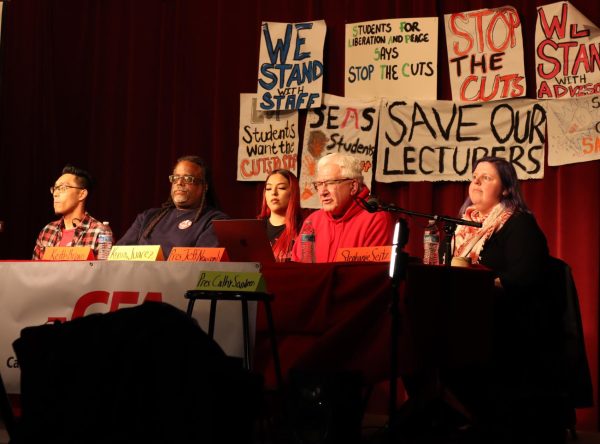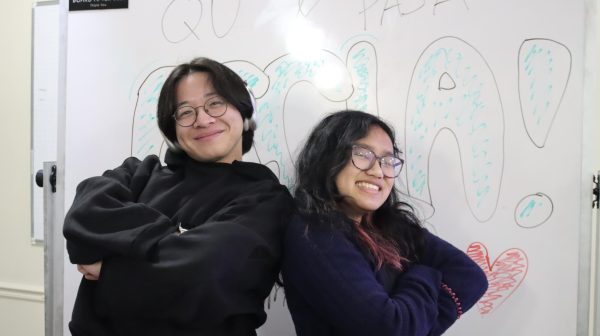Visiting professor speaks on climate change
Professor Guy McPherson from the University of Arizona spoke to an audience of California State University, East Bay students on Tuesday about the status of climate change in the world.The diagnosis, he said, was not good.
McPherson has studied climate change for more than 30 years and said he believes we are on a sinking ship. “Methane is running the show now,” McPherson said.
Increased temperatures have led to the release of methane from melting Siberian permafrost and Arctic waters in the last few decades, the consequences of which scientists have only begun to understand in the last five years, said McPherson.
Methane has a relatively short half-life of about a decade, but can have up to 100 times the warming effect of carbon dioxide, which it becomes when it breaks down along with water vapor, according to NASA’s Goddard Institute for Space Studies.
The carbon dioxide stays in the atmosphere much longer, acting as a blanket holding heat inside of the Earth’s atmosphere.
“While 2012 was the ninth-warmest year on record, all 10 of the warmest years in the… analysis have occurred since 1998,” according to NASA’s GISS.
There is a 40-year lag between cause and effect in climate change, so humans have not yet experienced the consequences of the increased carbon emissions from the 1970s onward.
Though McPherson said they are still “baked into the cake,” so these changes will become more pronounced with time.
As the temperatures increase, the polar ice caps continue to melt and release more of their stores of carbon dioxide and methane into the atmosphere, accelerating the process of temperature increase.
This is known as a self-reinforcing feedback loop.
Thirty-eight irreversible self-reinforcing feedback loops have been identified in environmental processes by the scientific community, one of which is the melting of the polar ice caps.
As the temperature increases, the ice melts and reflects less of the sunrays away from the earth.
As a consequence the deep, blue water forming around the ice absorbs more light, which leads to more warming and thus more melting.
Small temperature increases can have profound ecological impacts.
McPherson explained that the poles are warming much faster than the equator. As a result, the cooling winds that blow across the atmosphere, jet streams, are not as strong and have begun moving in unpredictable ways.
Areas of high pressure drive the weaker winds off course.
As the polar jet streams travel, they may get trapped in a meander, or a particular circuitous course, leading to persistent weather in the area where it is trapped.
This may be connected to the California drought, according to the most recent climate report in the Bulletin of the American Meteorological Society.
“Every year climate change leaves over 300,000 people dead, 325 million people seriously affected, and economic losses of $125 billion,” according to a report released by the Global Humanitarian Forum, an international non-profit organization.
“Four billion people are vulnerable, and 500 million people are at extreme risk,” according to the GHF report.
McPherson said we have been insulated from the impacts of climate change so far, living in the American cornucopia, but soon the changes will affect us all and be impossible to ignore.







